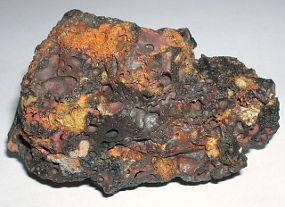One of the effects of multiculturalism amid globalization is that more and more people are exposed to the often strange belief systems of others. And regardless of what others may say, everyone has a belief system. You may insist you don’t believe in anything or anyone—no gods, goddesses, gurus, or guides—but that very lack of believing is itself a belief.
The problem with most belief systems: almost every one of them has a core understanding that to be a faithful believer in that belief, one must do something to be shown acceptable or holy. And in almost all cases that means one must keep doing that holy practice. In those few cases when a practice may be done once, it is simply replaced with another practice to perform, ad infinitum.
In short, almost all the world’s religions consist of little more than sets of rules.
Sometimes, those rules become headscratchers. Take, for example, this one:
So, the religious rule is never to carry items on the Sabbath day or else that is considered work and not God-ordained rest, although carrying inside the house is OK. So make your house larger by erecting walls in the wider community and call them part of your house. And then when upkeep on masonry or lumber gets too burdensome, convert the wall into a string. Presto, you have an eruv.
Doesn’t it seem sad to you that your standing or mine with a deity would depend on whether or not we are carrying a package on a certain day on the correct side of a piece of string? Doesn’t the mere idea of this fill you with a sense of despair that we amount to so little in that deity’s eyes that we must keep jumping through such hoops to please him? Or that he would be so easily fooled by our clever loophole? (Or 18-mile, loop-of-string-wall, to be perfectly holy in exactitude.)
Jesus ran into that kind of man-made holiness and was not impressed.
Then some Pharisees and teachers of the law came to Jesus from Jerusalem and asked, “Why do your disciples break the tradition of the elders? They don’t wash their hands before they eat!”
Jesus replied, “And why do you break the command of God for the sake of your tradition? For God said, ‘Honor your father and mother’ and ‘Anyone who curses their father or mother is to be put to death.’ But you say that if anyone declares that what might have been used to help their father or mother is ‘devoted to God,’ they are not to ‘honor their father or mother’ with it. Thus you nullify the word of God for the sake of your tradition. You hypocrites! Isaiah was right when he prophesied about you:
“‘These people honor me with their lips,
but their hearts are far from me.
They worship me in vain;
their teachings are merely human rules.’”Jesus called the crowd to him and said, “Listen and understand. What goes into someone’s mouth does not defile them, but what comes out of their mouth, that is what defiles them.”
Then the disciples came to him and asked, “Do you know that the Pharisees were offended when they heard this?”
Religious rulekeepers get offended easily. In Jesus’ day, He drove the rulekeepers batty. They tried to pin down Jesus by their rules, but Jesus would tolerate none of it. He countered by quoting the prophet Isaiah and noting the rulekeepers had made a scandalous “holy” rule that if they devoted their stuff to God, they had no responsibility to use it to help their parents.
Jesus called these men “hypocrites” not because they were violating their own rules but because they thought their rules were making them holy—when those rules were actually doing the opposite.
Most religions are rules made by men. They trap adherents in a maze of do’s and dont’s that only lead people into despairing pits of precepts and farther away from God. Rules upon rules, and men and women trying desperately to keep an endless string of them, almost always failing, if not by the letter of the law then by its spirit.
The Christian faith is utterly different. The Christian faith rejects any idea that anyone can abide by enough rules or keep them well enough to be seen as holy in God’s eyes, to be good enough to merit God’s favor. We might as well try to blow out the sun as ever get to a place by our own works and religious efforts where we can stand before the presence of a holy, spotless, perfect God.
But a Way exists, and it’s not by following rules but by faith in a person, Jesus Christ. He WAS perfect. He kept all the holy rules. He never erred, never sinned. And in dying on the cross, He imparts to all who receive Him that same holiness, through grace. Jesus finished all the holy work so that we will never have to. By grace, through faith, we can be covered for all responsibilities for holy works through the finished work of Christ alone.
That is what Jesus meant when He uttered His final words on the cross: “It is finished.” He completed the religious tasks. He met all the goals. He checked every checkbox so that those who place their faith in Him can be freed from rules made by men, and even those rules made by God to show how impossible it is for a human being like you or me to keep those rules and be holy by our own efforts. Thankfully, Jesus DID keep them all, and the requirement on us has been satisfied by Him forever. This is the Good News of the Gospel of Jesus Christ.
To learn more about the Gospel—how Jesus has satisfied all the rules of the Law on your behalf, freeing you from religious rulekeeping—please, please, please take 15 minutes to listen to this life-changing truth:

 Except one man, Jesus. He kept all the Law perfectly. He achieved the holiness that comes from doing all the Law correctly. And when He had crossed that metaphorical bridge over the rift and reached the other side, Jesus announced, “It is finished.”
Except one man, Jesus. He kept all the Law perfectly. He achieved the holiness that comes from doing all the Law correctly. And when He had crossed that metaphorical bridge over the rift and reached the other side, Jesus announced, “It is finished.” When I was a kid, my brothers and I collected rocks. We even had a cool display of different types of raw gemstones and minerals.
When I was a kid, my brothers and I collected rocks. We even had a cool display of different types of raw gemstones and minerals.